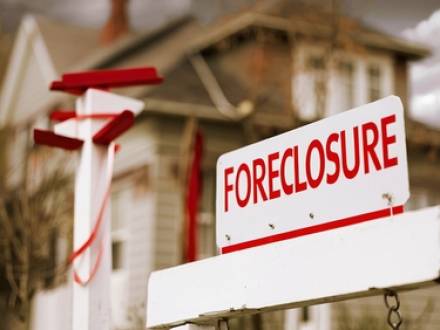1512 Artaius Parkway, Suite 300,
Libertyville, IL 60048
Call for a FREE Phone Consultation
847-549-0000
Video Consultations Also Available
 Spanish
Spanish Cantonese
CantoneseServing Clients Across 7 Illinois Locations
Different Types of Foreclosure Workout Agreements
 Facing home foreclosure can be devastating. For most people, their home is their refuge. Foreclosure makes homeowners less likely to buy another house in subsequent years, they are more likely to default on other debts, and their overall living arrangements become less secure.
Facing home foreclosure can be devastating. For most people, their home is their refuge. Foreclosure makes homeowners less likely to buy another house in subsequent years, they are more likely to default on other debts, and their overall living arrangements become less secure.
Unfortunately, a new study reveals that among the states with the highest rates of home foreclosures, Illinois ranks ninth, with one foreclosure for every 3,753 homes. By comparison, the state of Missouri has a foreclosure rate that is less than half that of Illinois, with one in every 7,112 homeowners facing foreclosure.
There are some solutions to foreclosure, including workout agreements that occur early on in the foreclosure process. The best step you can take if you are facing foreclosure is to speak to an experienced Grayslake, IL foreclosure defense attorney from Newland & Newland, LLP.
What is a Foreclosure Workout Agreement?
A foreclosure workout agreement is a mutually negotiated agreement between a debtor and a creditor that manages and resolves a debt without resorting to bankruptcy. In this case, the agreement is between the homeowner and the mortgage holder. Under certain circumstances, lenders can work out a compromise up until the time a home is scheduled for auction, but the sooner a homeowner can engage in a workout agreement, the better. The following workout agreements may be available for those facing foreclosure:
Repayment Plans
When a mortgage holder and the homeowner reach an agreement to make up missed mortgage loan payments by adding part of the past-due amount to regular payments over a specified period, this is known as a repayment plan. Before agreeing to a repayment plan, homeowners must ensure that they will be able to pay the higher amount of the new payments. The mortgage loan may be considered delinquent until all of the missed payments have been repaid. The mortgage holder may also report delinquencies to credit reporting agencies.
Reinstatement of the Loan
When the homeowner brings the delinquent mortgage payments up to date by paying a lump sum to the lender, foreclosure is halted. All overdue fees and expenses incurred as a result of the default must also be paid when reinstating a loan. Once the loan is reinstated, regular payments are resumed. It is important to check mortgages and deeds of trust to ensure homeowners have the contractual right to complete a loan reinstatement.
Forbearance
Mortgage forbearance is a way for struggling homeowners to avoid foreclosure, although the terms of forbearance must be approved by the lender. Not all borrowers will qualify for forbearance. When applying for mortgage forbearance, detailed information regarding the homeowner’s financial situation is required. Mortgage forbearance was first extended to homeowners as a part of the CARES Act during COVID-19. Once the forbearance period has ended, the borrower is usually responsible for making up the delinquent payments.
Loan Modification
A loan modification adjusts the original terms of the mortgage to result in temporary or permanent changes to the homeowner’s monthly payment, terms, or interest rate. The goal of a loan modification is to reduce monthly payments to a manageable amount. This helps homeowners avoid damage to their credit score, a collection lawsuit, and foreclosure. Application for a loan modification must be submitted at least 45 days before the scheduled foreclosure sale of the home.
Refinance
A foreclosure refinance is a short-term loan, usually with a fixed rate for the next two or three years. This gives the homeowner enough time to get their finances in order and refinance at the end of the fixed payment to a lower monthly payment. The foreclosure refinance payments are usually interest-only and could be lower than forbearance payments.
Contact a Lake County, IL Foreclosure Defense Attorney
If you find yourself facing foreclosure, it can be very beneficial to speak to a North Chicago, Illinois foreclosure defense lawyer from Newland & Newland, LLP. Our attorneys have decades of combined experience and are local to Illinois. They always prioritize their clients and communities. The main attorney has served on the Board of Directors of the Illinois Real Estate Lawyers Organization and the Real Estate Committee of the Lake County Bar Association. To schedule your free consultation, call 847-549-0000.
 Stop Foreclosure
Stop Foreclosure




















